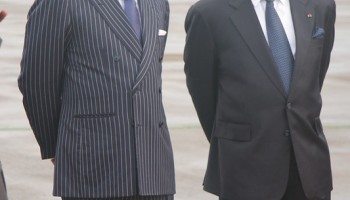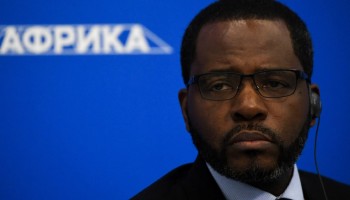Teodoro “Teodorin” Nguema Obiang Mangue, the 48-year-old son of Equatorial Guinean President Teodoro Obiang, was found guilty in absentia of abuse of trust, money-laundering and embezzlement.
He was given three-year suspended prison sentence and fined 30 million euros ($34.89 million) for spending more than 1,000 times his official annual salary to purchase the Paris mansion, vintage wines, works of art, and luxury cars including a Bugatti Veyron, a Rolls-Royce Phantom and a Ferrari.
The upscale house included a hammam, a disco, a gym, and a hair salon.
The ruling “is the beginning of the end for this rule of impunity and immunity that these kleptocrats imagined was eternal,” said William Bourdon, a lawyer for advocacy groups Transparency International and Sherpa, The Telegraph reported.
An investigation was launched into Obiang's lavish lifestyle in 2012 after Transparency International and Sherpa filed a complaint against Obiang accusing him of having siphoned off more than $225 million of public money while he was agriculture and forestry minister.
Judge Benedicte de Perthuis criticized French bank Societe Generale and the Bank of France for allowing Obiang to seamlessly channel public money to French accounts.
According to Germany's public broadcaster Deutsche Welle, the judge said that "the attitude of Societe Generale, similar to that of the Bank of France, may have led (Obiang) to think for a long period of time that there was, in France, some kind of tolerance for these practices."
Obiang’s lawyer, Emmanuel Marsigny, said his client may appeal the decision.
The suspended sentence mean that Obiang will face prison and paying the fine only in the event he is convicted in France a second time on similar charges.
The mansion cannot be seized by French authorities until the International Court of Justice (ICJ) in The Hague confirms the court's order.
In December 2016, the ICJ ruled that the French court had jurisdiction to try Obiang, but that the mansion was a diplomatic mission of Equatorial Guinea.
Transparency International is calling for legal measures to return seized assets to their country of origin, instead of being contributed to France’s government coffers. Their proposal will be debated at the National Assembly in Paris on November 23rd.






